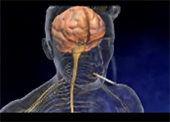 Chronic, heavy marijuana use during adolescence, which is a critical period of ongoing brain development, is associated with poorer performance on thinking tasks, including slower psychomotor speed and poorer complex attention, verbal memory and planning ability.
Chronic, heavy marijuana use during adolescence, which is a critical period of ongoing brain development, is associated with poorer performance on thinking tasks, including slower psychomotor speed and poorer complex attention, verbal memory and planning ability.
Research supported by the National Institute on Drug Abuse (NIDA) shows that it is evident even after a month of stopping marijuana use. There may be partial recovery of verbal memory functioning within the first three weeks of abstinence from marijuana, but complex attention skills continue to be affected.
Not only are their thinking abilities worse, their brain activation to cognitive tasks is abnormal. The tasks are fairly easy, such as remembering the location of objects, and they may be able to complete the tasks, but the adolescent marijuana users are using more of their parietal and frontal cortices to complete the tasks. Their brain is working harder than it should.
Girls may be at an even greater risk than boys.
The research was presented at the 2008 annual meeting of the American Academy of Pediatrics in Boston, Mass., by Krista Lisdahl Medina, a University of Cincinnati assistant professor of psychology, and Susan Tapert, associate professor of psychiatry at the University of California, San Diego.
There are effective drug addiction recovery programs. For more information on overcoming a drug abuse problem, review this >> marijuana abuse solution
0 responses so far ↓
There are no comments yet...Kick things off by filling out the form below.
Leave a Comment